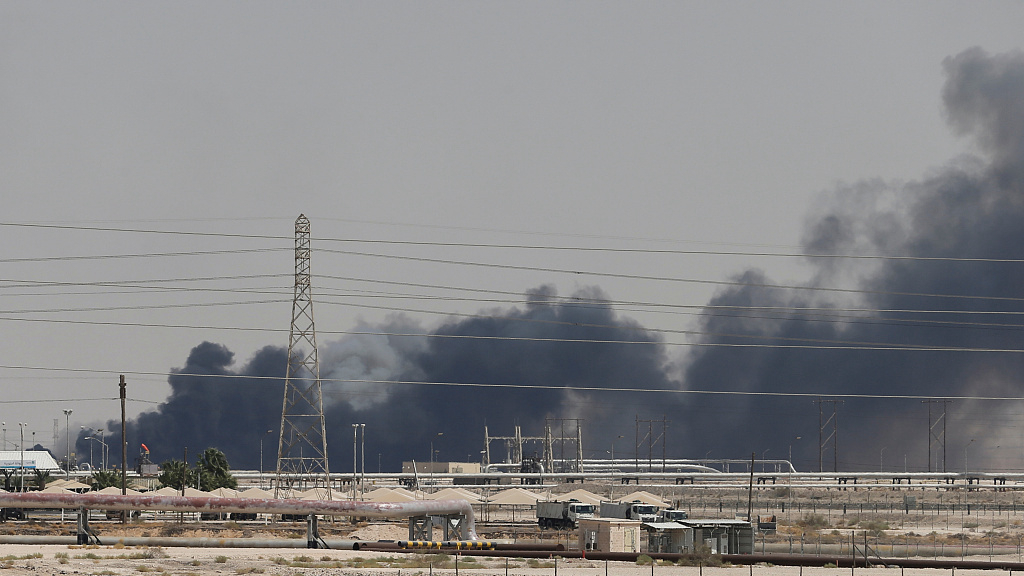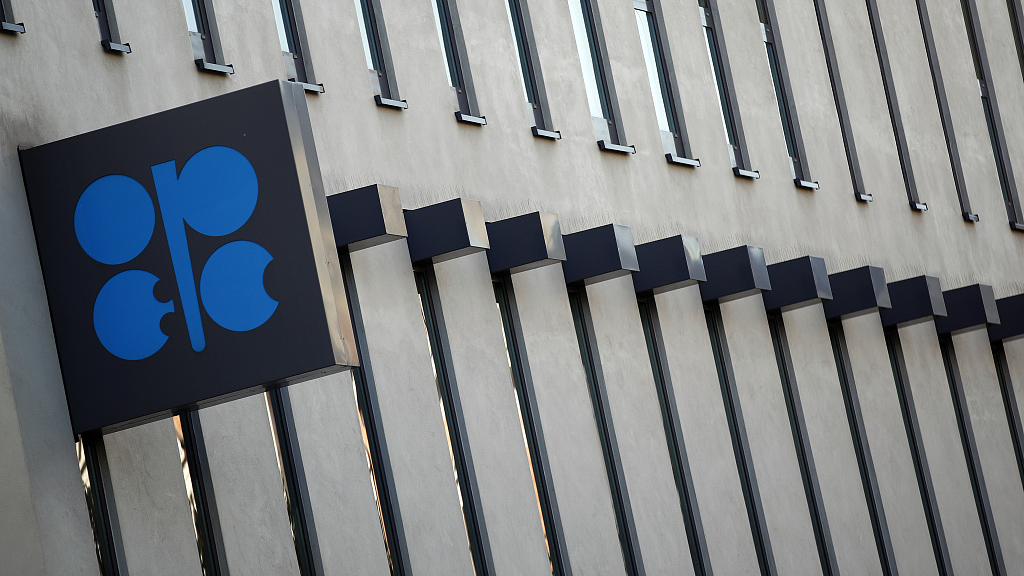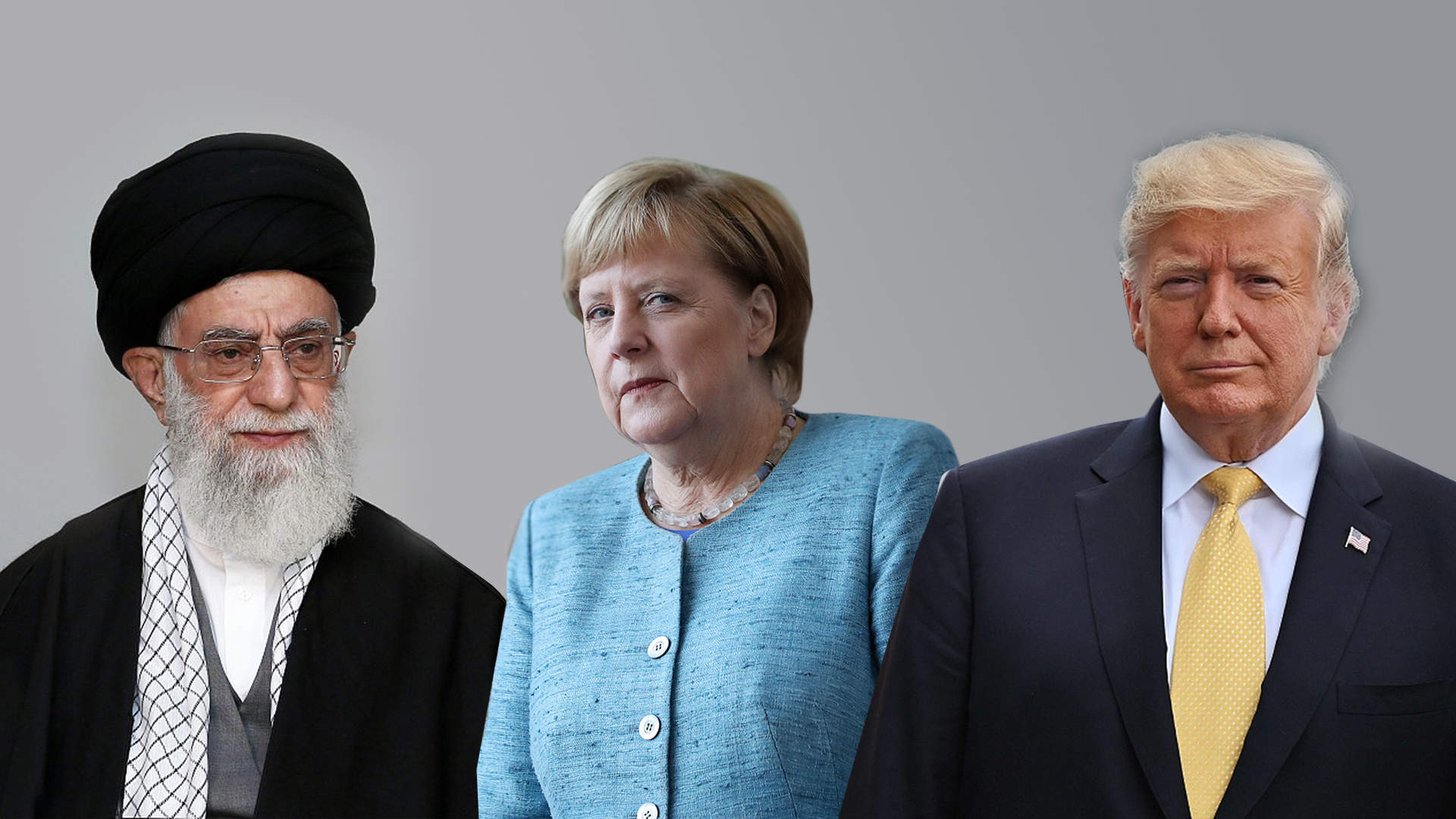"The dollar is the most import thing that gives the U.S. power," Gal Luft, co-director of the Washington-based Institute for the Analysis of Global Security, told an audience at Renmin University of China on Monday.
Yet the county's out-of-control deficits along with global scrutiny of its overuse of sanctions have prompted a revolt against the currency, he continued, at an event marking the launch of a new book co-authored by Luft on de-dollarization.
The U.S. has used sanctions and other economic weapons to force other countries to adhere to its foreign-policy goals. One prime example is when the U.S. unilaterally pulled out of the 2015 Iran nuclear deal, while re-imposing crippling sanctions on Tehran, putting European firms at risk of potential U.S. punishment.
The effects of the U.S. pullout from the Iran deal continue to reverberate, with the U.S. blaming Iran for Saturday's attack on Saudi oil facilities, which was strongly denied by Tehran.

A fire at Aramco facility in the eastern city of Abqaiq, Saudi Arabia, September 14, 2019. /VCG Photo
A fire at Aramco facility in the eastern city of Abqaiq, Saudi Arabia, September 14, 2019. /VCG Photo
Luft attributed the extraterritorial legal outreach of Washington to the reserve currency status of the U.S. dollar, with the greenback used in 80 percent of the cross-border transactions worldwide.
Commodities for decades have been mostly traded in the U.S. dollar, with oil almost exclusively bought and sold in the U.S. currency.
If crude oil trading began to switch to other currencies, petrodollar demand would be undercut and American influence over global finance would diminish.
Saudi dilemma
Reuters reported in April that Saudi Arabia has threatened to sell its oil in currencies other than the U.S. dollar if Washington passes a bill allowing OPEC members to be sued under antitrust laws.

OPEC's logo is seen outside of the organization's headquarters in Vienna, Austria. /VCG Photo
OPEC's logo is seen outside of the organization's headquarters in Vienna, Austria. /VCG Photo
NOPEC, or the No Oil Producing and Exporting Cartels Act, has not yet been made into law as past U.S. presidents feared it would damage the U.S.-Saudi relationship.
However, U.S. President Donald Trump has repeatedly called on OPEC to raise oil production in order to lower global oil prices, while showing political support for Saudi Arabia – a key purchaser of U.S. weapons and military equipment.
Luft said Abu Dhabi needs to play a delicate game since the kingdom depends on the U.S. military alliance. He predicts Saudi Arabia will de-dollarize only to the extent that it could use the yuan when conducting trades with China, while keeping the overall "petrodollar" system intact.
Chinese imports of Saudi oil rose to 37.8 million metric tons in the first half of 2019, making the kingdom the largest source of China's crude imports.
"If they drop the dollar, that's a declaration of war against the United States. Because if the Saudis go, all of OPEC would go," Luft cautioned.
Europe launches INSTEX to facilitate trade with Iran
Renewed sanctions on Iran have intensified Europe's efforts to find alternatives to the dollar dominance. A special purpose vehicle – INSTEX, short for Instrument in Support of Trade Exchanges, was launched in June, allowing at least some business to continue with Iran. The non-dollar payment system enables money to be paid into the home country's account, which doesn't cross the border into or out of Iran.

(L-R) Iran's Supreme Leader Ayatollah Ali Khamenei, German Chancellor Angela Merkel, U.S. President Donald Trump. /CGTN Photo
(L-R) Iran's Supreme Leader Ayatollah Ali Khamenei, German Chancellor Angela Merkel, U.S. President Donald Trump. /CGTN Photo
The move showed Europe's commitment to sticking with the Iran nuclear deal, which was only achieved after strenuous, lengthy negotiations. The mechanism will initially focus on pharmaceutical products, medical devices, and food. But the fact that the three biggest economies in Europe – Germany, France and Britain – are involved in the scheme, and it being made operational and available to all EU members, should alert the U.S. to the fact that there is a growing, quiet movement building against the dominance of the dollar.
China, the world's largest importer of crude oil, set up a yuan-denominated oil contract in Shanghai in March 2018. A year since the Shanghai International Energy Exchange (INE) opened for trading, the combined turnover of the INE crude oil futures stood at nearly 36.7 million lots, with a total value of 17.1 trillion yuan.
Russia last year increased efforts to sell oil in euros, while Reuters reported in August that Russia's Rosneft, one of the world's top oil producers, has contacted buyers about switching from dollars to euros on future tender contracts for oil products in an attempt to bypass U.S. sanctions.
Opinion: Iran, Russia are throwing sand in gears of U.S. sanctions